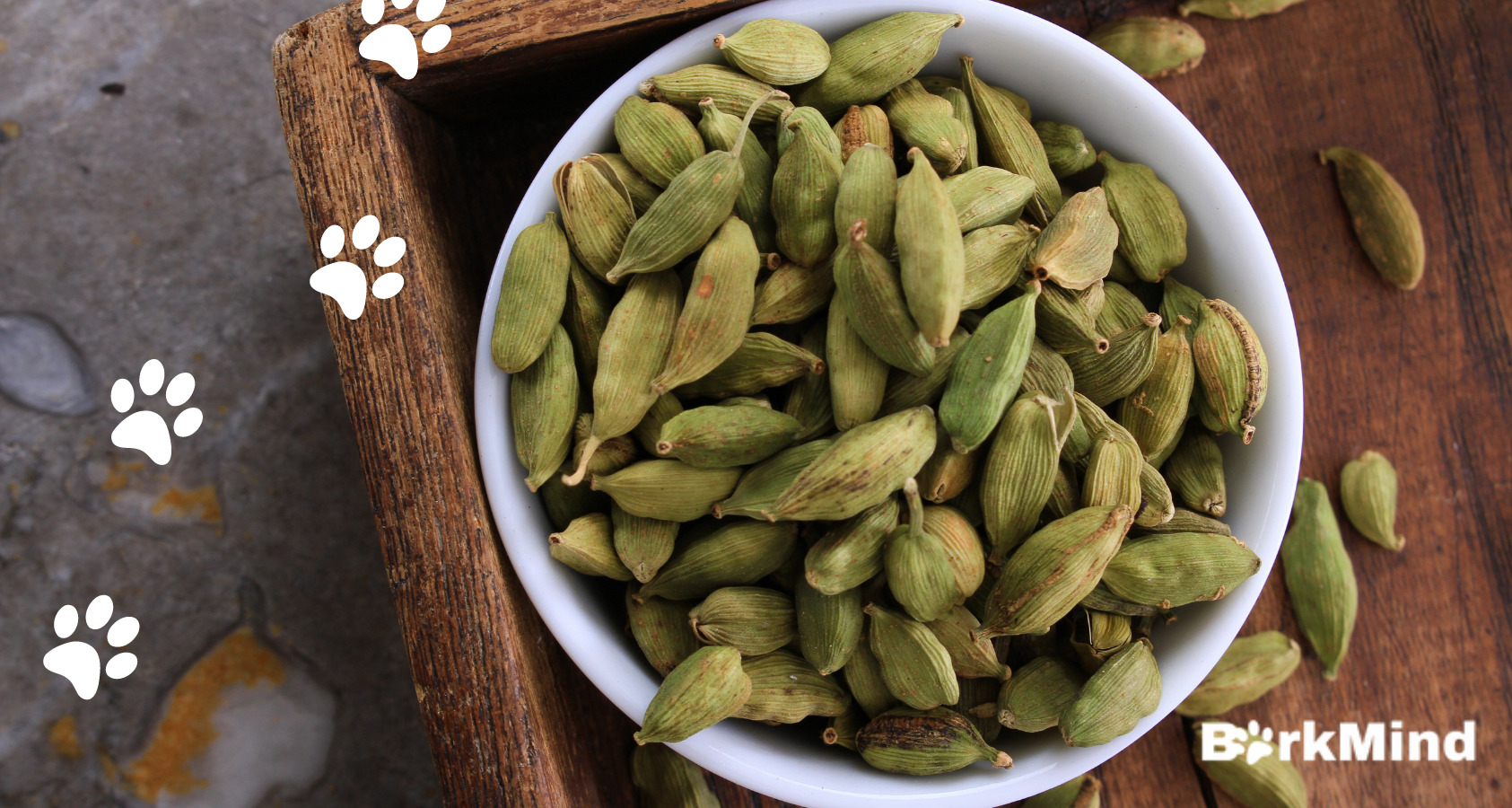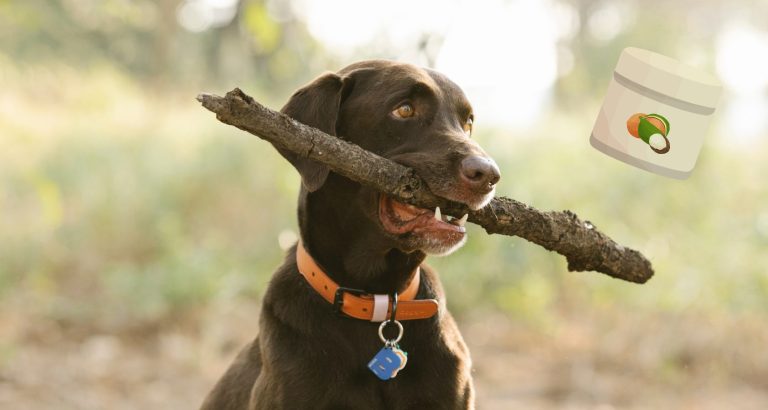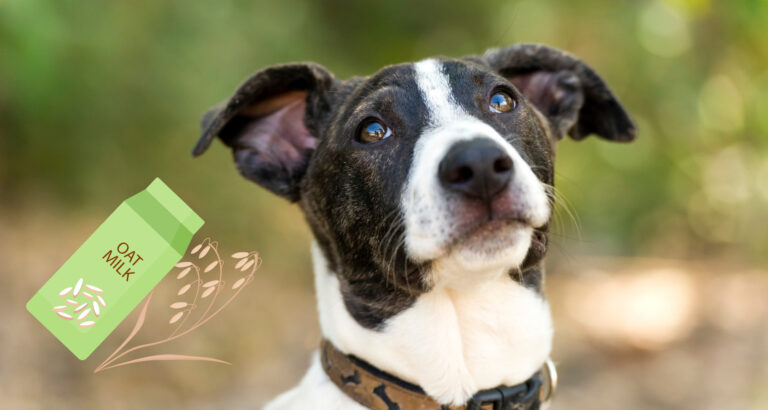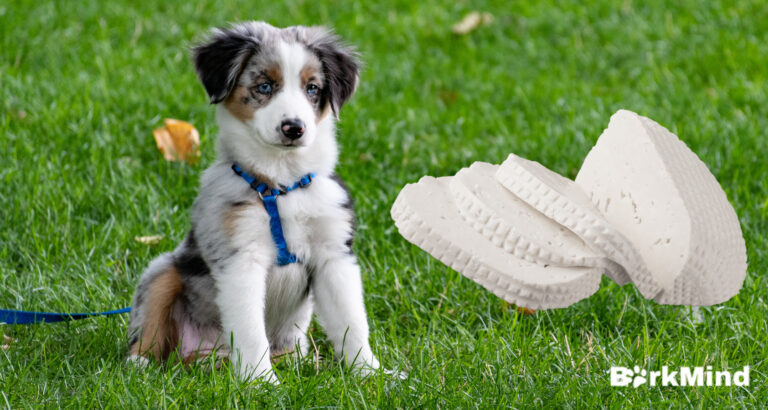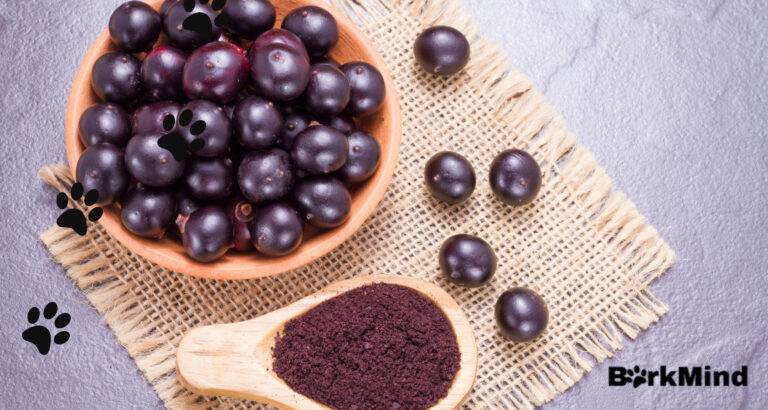Can Dogs Eat Cardamom? Answered!
Last updated on March 20th, 2023 at 10:17 pm
Reading Time: 5 minutesThis post may contain affiliate links. If you click and buy we may make a commission, at no additional charge to you.
Can Dogs Have Cardamom?
Spilling your cardamom tea isn’t bad, but your dog rushing to drink the spilled tea will make you panic. Since cardamom is present in the tea, will your dog be okay? Is it safe? These will be the questions rushing through your mind. So, ‘Can Dogs Eat Cardamom?’
Quick Answer
Cardamom is completely safe for dogs as it is a natural product without any risk of toxicity. It actually has a lot of health benefits, and it is advised to incorporate some in your dog’s diet. However, it can be harmful if taken in extremely high amounts as it can act as a laxative.
Wait! Allowing your dog to have a lot of cardamoms can also go wrong thus you need to be very careful about it. Here you can find potential benefits, risks, and all other queries related to feeding cardamom to dogs. So, why delay? Let’s go!
Is Cardamom Safe For Dogs? Risks And Benefits!
Cardamom is a sweet spice that has a lot of health benefits for you and your dog. Incorporating it into your dog’s diet is definitely going to be a healthy boost for your dog. However, it can be a little harmful if overused, so make sure it’s given in moderation.
Benefits of Cardamom for Dogs
Cardamom has a lot of health benefits. It can help with diarrhea, indigestion, and constipation. Not only that, due to its antimicrobial properties, it can help relieve cold and nausea symptoms. A small dose is really good for your dog’s health and can help alleviate many symptoms.
- Cardamom essential oil can be used as an alternative if you want to feed your dog cardamom. If your dog is suffering from constipation, adding a decent amount of cardamom essential oil can help.
- Cardamom can induce loose stools relieving your dog. If your dog is having indigestion problems, cardamom can also help with that. It stimulates the pancreas to release secretions that help break down the food, and that way, your dog’s stomach can start digesting properly.
- Cardamom can also help treat infections of the urinary system as it acts as a natural diuretic. Other than that, cardamom essential oil can be used externally to treat skin infections in dogs like ringworm, fungal, and scabies.
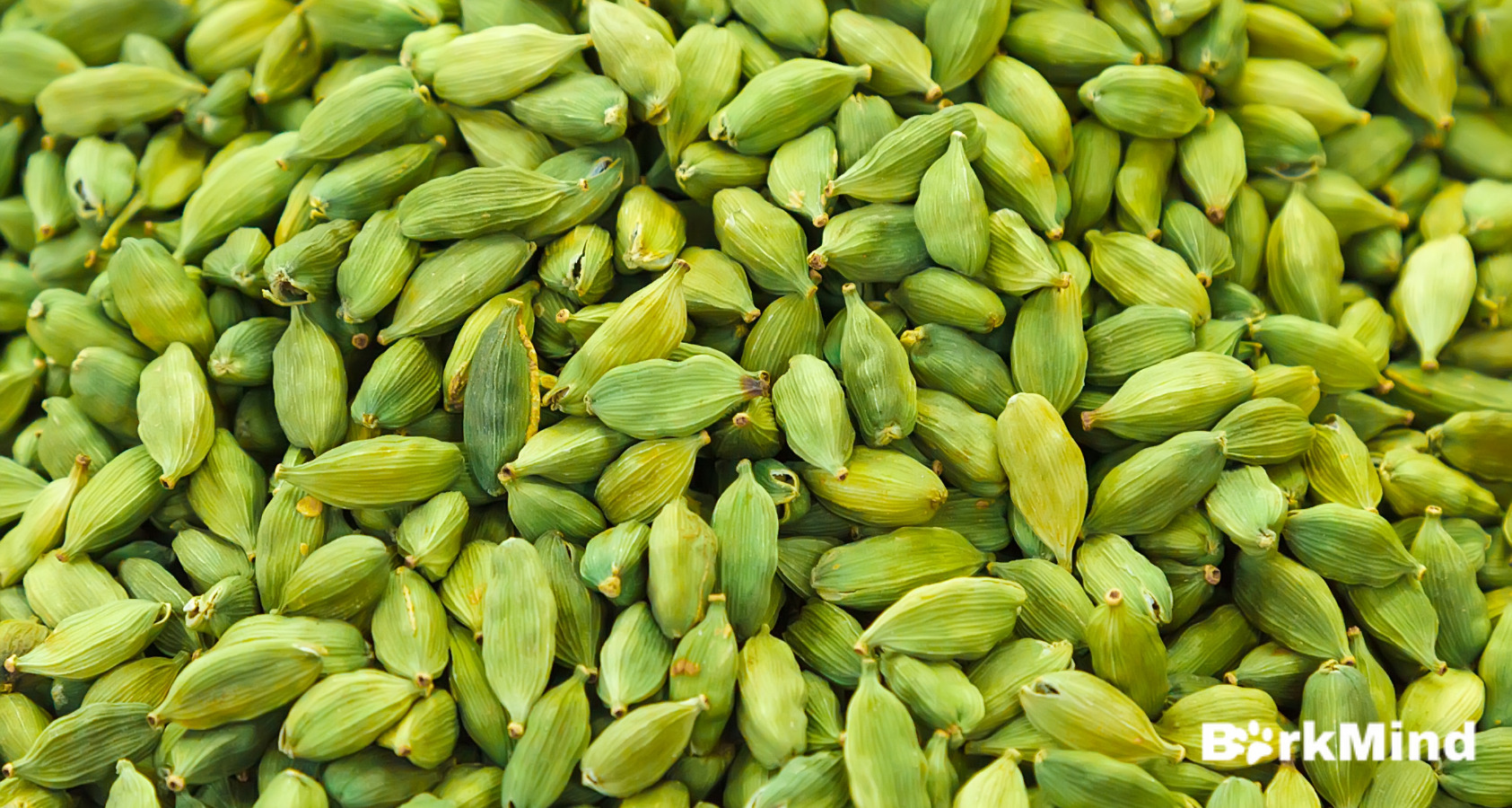
Risks of Cardamom for Dogs
Cardamom usually isn’t harmful to dogs; however, if your dog is taking it overwhelmingly, you should stop and reduce that. Cardamom can act as a laxative if given in large amounts and can cause excessive diarrhea. If your dog is on any medication, avoid using cardamom in his meals. Also, it’s advised not to give cardamom to a pregnant dog; otherwise, consult your vet about your dog’s health and discuss her medical history to confirm whether cardamom is safe for her or not.
Are there any Side Effects of Cardamom for Dogs?
Yes. If cardamom is taken in large amounts and makes up more than 10% of your dog’s diet, it can have side effects. It can cause diarrhea as well as vomiting and bloating. If you see it happening, contact your veterinarian immediately.
To avoid this from happening, it’s best to keep the use of cardamom in your dog’s diet to under 10%.
How To Feed Your Dog Cardamom?
Cardamom can be incorporated into your dog’s diet in several ways. Mentioned below are a few ways you can add cardamom to your dog’s meal for the extra health benefits!
- Giving Cardamom Pods
The easiest way to give your dog cardamoms is by giving them 2-3 cardamom pods a day. Many dogs do enjoy chewing on cardamoms, making it a nice treat. It’s really simple and easy.
- Mixing it With Tea and Food
Giving raw cardamom pods might be easier; however, not all dogs like the taste or smell of cardamoms. If that’s the case with your dog, you don’t have to worry! Brewing a tea with cardamom and giving it to your dog or making dog recipes with cardamom can be a great way of incorporating cardamoms into your dog’s diet.
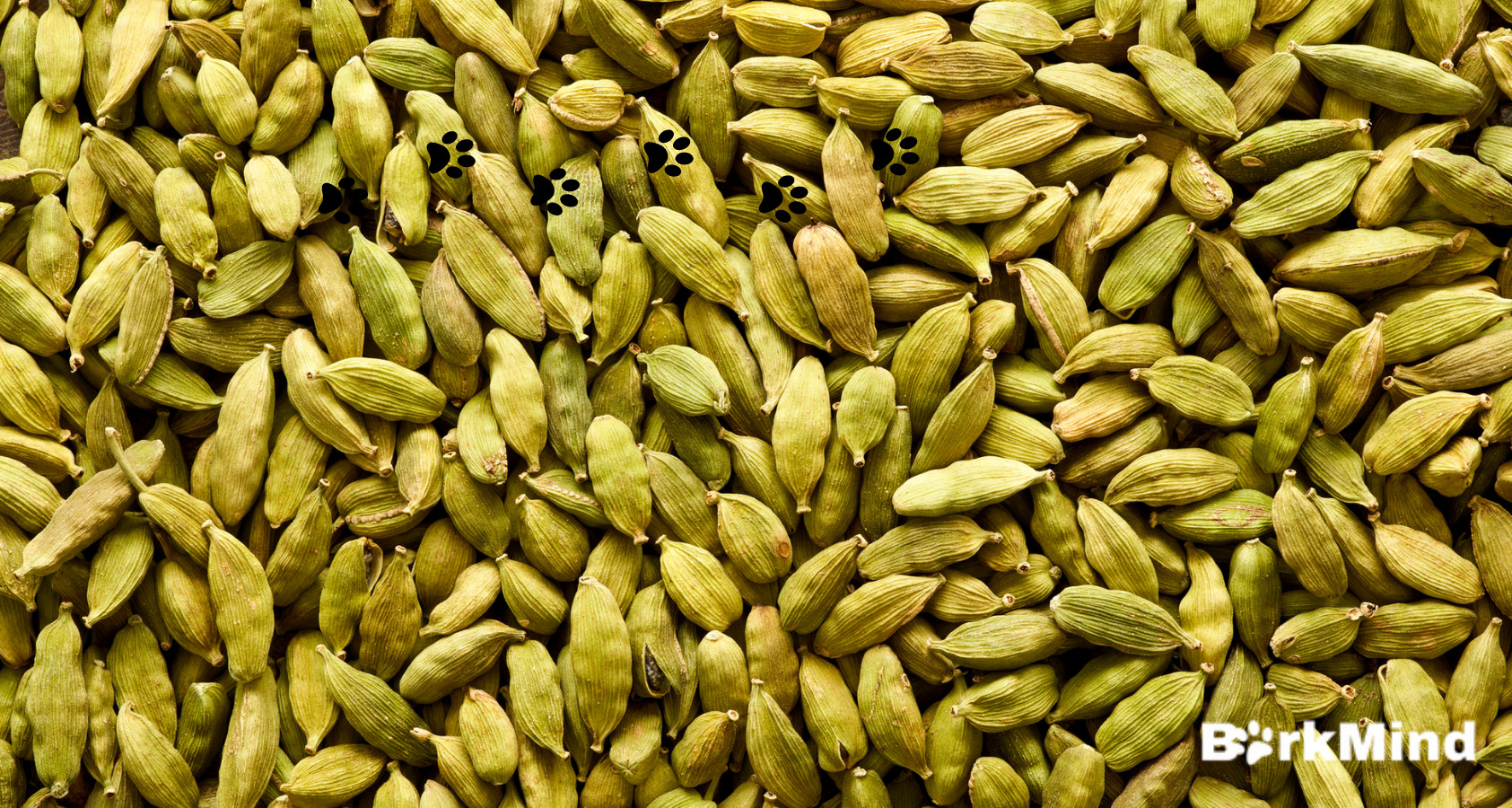
- Cardamom Essential Oil
Cardamom doesn’t only have internal but also external benefits. Using Cardamom essential oil in a diffuser and keeping it close to your dog can help it relax and alleviate cough and cold symptoms.
Are Dogs Allergic to Cardamom?
Allergies caused by cardamoms are very unusual. It’s very unlikely your dog will get an allergic reaction to cardamoms; however, every dog is different, and one thing can have different effects on different dogs. That’s why it’s best to test before giving him cardamom regularly.
You can start by giving very little and seeing if anything unusual happens like diarrhea, vomiting, etc. If everything looks good, you can continue with the dosage. If not, then contact your vet and get your dog treated as soon as possible!
Can Diabetic Dogs Eat Cardamom?
Yes. Eating cardamom is not harmful for diabetic dogs. If cardamom is given in small amounts, it can have little to no harmful effect on them. However, giving them a large amount would be bad as the sweetness in cardamom seed can induce high insulin levels, so make sure you’re giving it in a controlled amount.
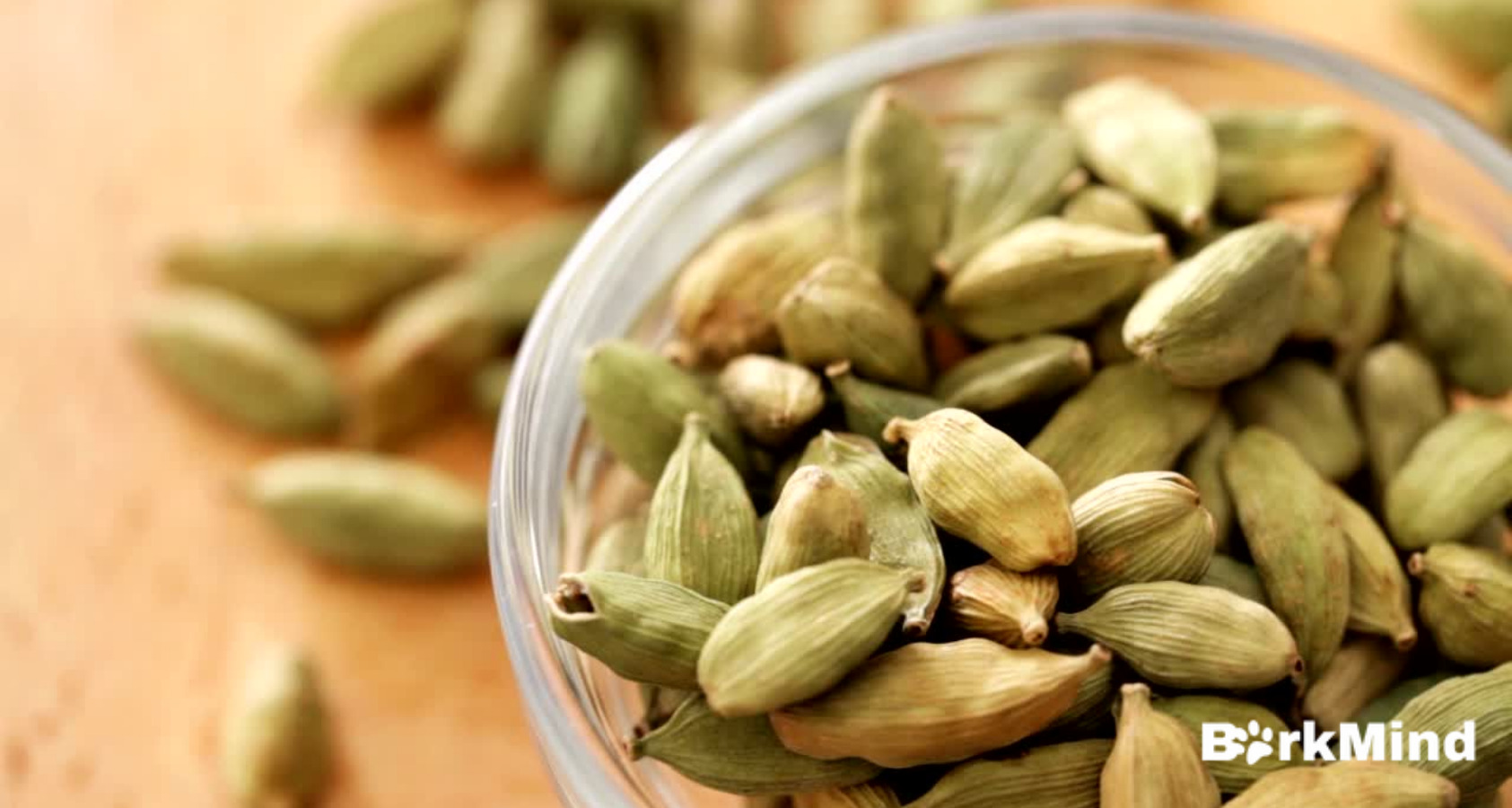
How Many Cardamoms are Safe for Dogs?
It is advised to give your dog around 2-3 cardamom pods a day to avoid any complications. Cardamom acts as a laxative; that’s why if you give your dog more than you should have, it can be harmful and cause severe diarrhea.
Conclusion – Can Dogs Eat Cardamom?
Cardamoms are a sweet spice that’s mostly used in curries and brew teas. It has a lot of health benefits for humans but also for dogs! You can feed your dog cardamom pods in small amounts, and it will be really beneficial to them. It can help with digestion problems and can help relieve cough and nausea symptoms. However, be careful not to give your dog too much as it can be dangerous and do more harm than good. It’s a natural laxative and can cause severe diarrhea.
About The Author
Mother, Certified animal Behaviorist who loves pets. Has two dogs and a cat. Trained veterinarian and loves to write about her experiences.

